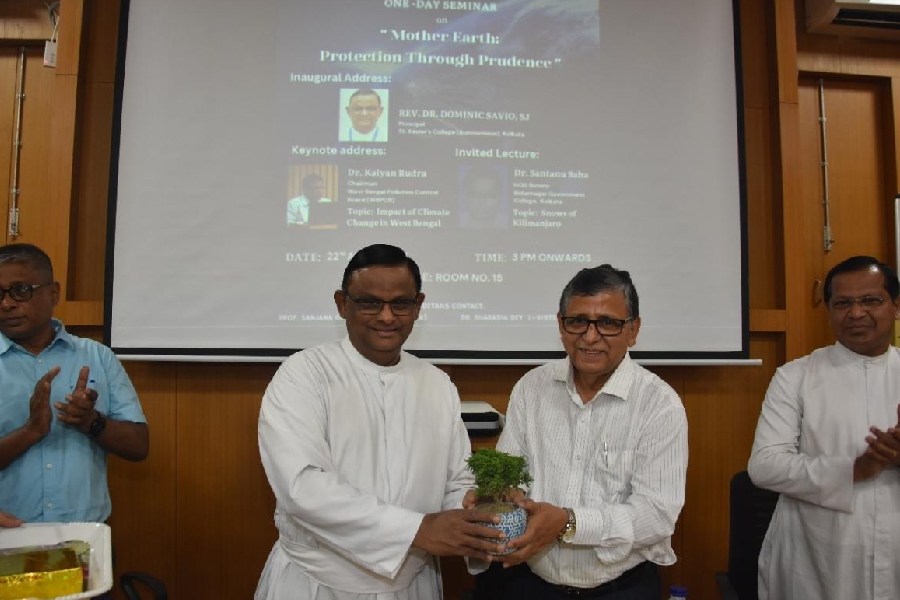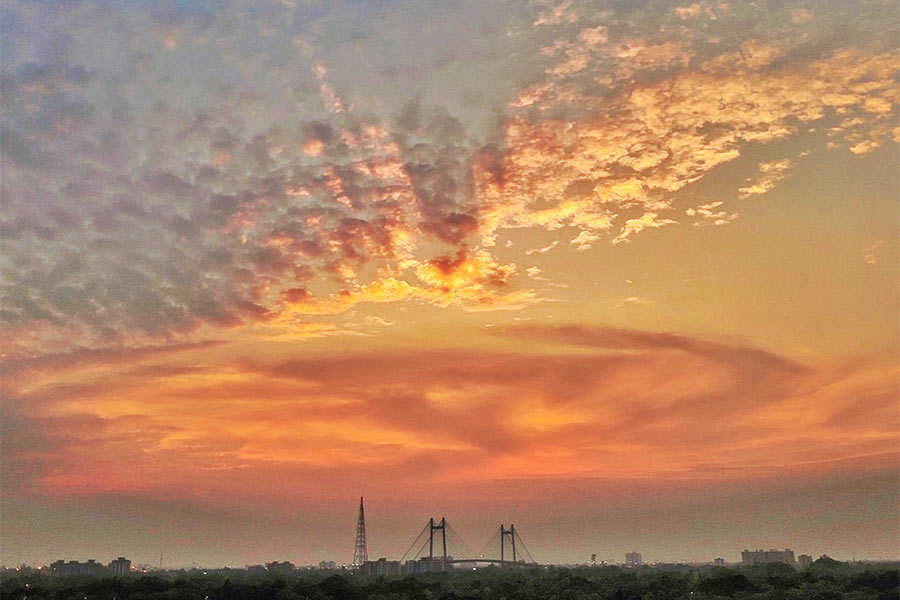- The sea-level rise along some of the islands in the Sunderbans is as much as 7mm every year.
- The land temperature recorded in 2023 was the highest in Bengal in the last 123 years.
- There is a decrease in early monsoon rain and an increase in late monsoon rain.
These were some of the points underlined during a talk titled “Impact of Climate Change in West Bengal” by Kalyan Rudra, the chairperson of the West Bengal Pollution Control Board, at St Xavier’s College, Calcutta, recently.
“We are all talking about the high temperatures because of the heat we are feeling now. One thing that we do not feel is the change in rainfall pattern. But its impact on agriculture will be enormous,” Rudra said. “The early-monsoon rain is now delayed in parts of our state while there is cloudburst rain during the latter part of the monsoon that destroys crops.”
Because of the delayed early-monsoon rain, the cultivation of Kharif crops gets delayed. The transplantation of rice seedlings from the seedbed to the field gets delayed, he said.
“The rice seedlings cannot be transplanted unless the farmland turns muddy,” Gautam Saha, vice-chancellor of Bidhan Chandra Krishi Viswavidyalaya, told Metro earlier. He was not present at the seminar.
Metro reported earlier this month that a study of south Bengal’s rainfall figures over 60 years from 1961 shows a clear decline in the amount of rain in early monsoon and an increase in rain in the latter part of the season, often stretching into October.
The data was procured from the India Meteorological Department. Scientists at the Indian Statistical Institute Kolkata sorted the data and did a preliminary analysis for the state. The analysis was done as part of a project to prepare a climate action plan for the state.
“The change in rainfall pattern will affect agriculture production. The three crop cycles — Kharif, Rabi and Boro — are interlinked. If one is disrupted, others get disrupted too,” Rudra later told Metro.
Rudra was one of the speakers at a one-day seminar at St Xavier’s College on Earth Day (April 22).
Father Dominic Savio, the principal of St Xavier’s College, said: “The first Earth Day in 1970 played an essential role in launching worldwide environmental action. This is an annual celebration that honours the achievements of the environmental movements and spreads awareness about the need to protect natural resources.”
During his talk, Rudra also spoke about the sea-level rise along the coast in the Sunderbans. “The combined effect of land subsidence and rise in sea level is leading to a situation where the sea rises by up to 7mm every year. We have already lost 120sqkm of land in some of the frontal islands of the Sunderbans in the past 50 years,” he said.






